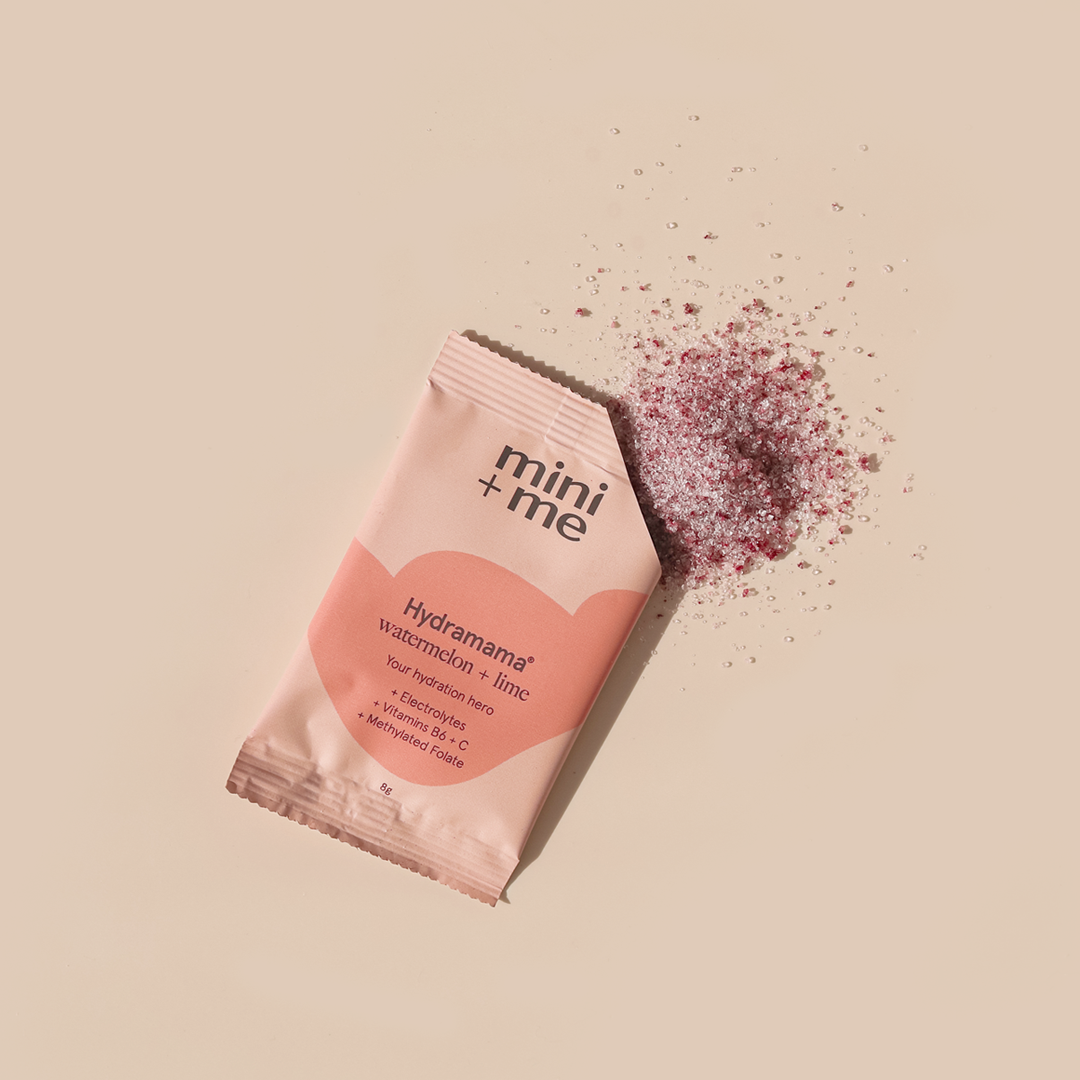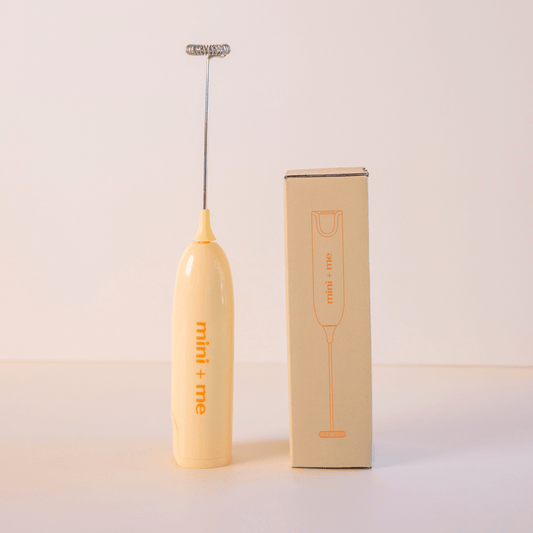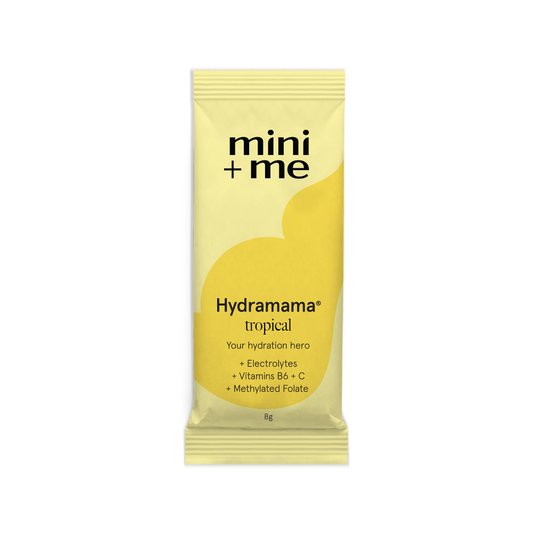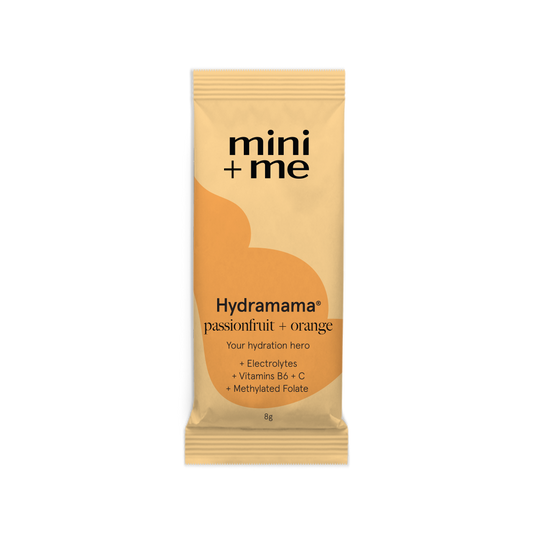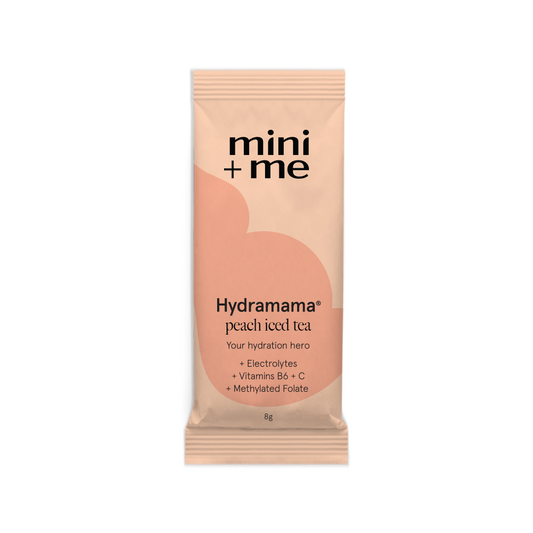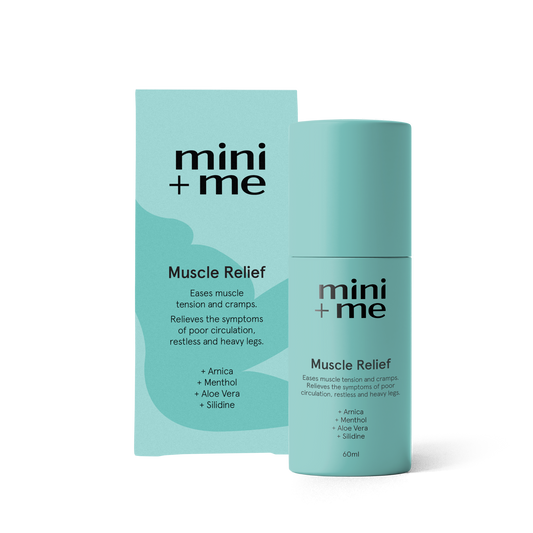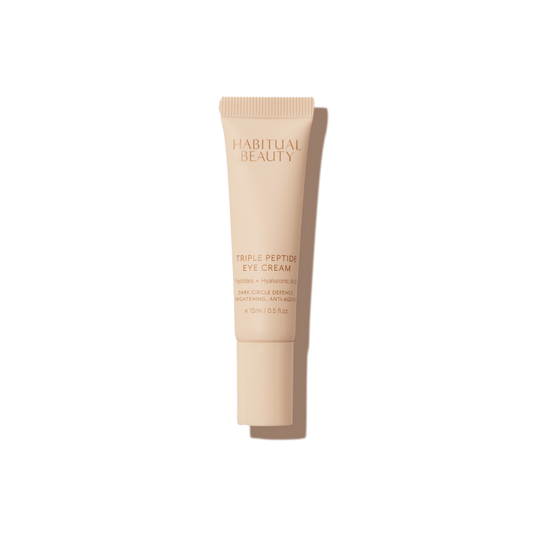In the early stages of pregnancy, folate is often promoted as the ‘must have’ supplement to support mum and a growing bub, yet electrolytes often go under the radar despite how important they are for sustaining adequate hydration and supporting a healthy pregnancy and postpartum journey.
In a study looking at the hydration levels of pregnant women, researchers found there was a significant relationship between hydration status and water intake and birth weight, length, head circumference and chest circumference of the baby. Essentially, the more hydrated the mama was the better pregnancy outcomes and healthier the baby’s size was.
Studies also show the recovery after birth when beginning the breastfeeding journey is just as important to consider too, with research suggesting water content alone makes up 87 percent of breast milk, along with 3.8 percent fat, 1.0 percent protein, and 7 per cent lactose. What this means is as a new mum hydration and electrolyte levels are essential for providing adequate nutrition for bub too.
It isn’t just about drinking more water either…electrolytes specifically are about maintaining our mineral uptake as well. Throughout the day, we often lose electrolytes in a variety of ways, from trips to the toilet, sweating, vigorous exercise, morning sickness or even from experiencing an increased breath rate. With this in mind, we need to constantly refuel our electrolyte levels and not just through water alone (although that’s definitely a good place to start).
So what are electrolytes? In simple terms they are made of a combination of key minerals and vitamins including: sodium, chloride, potassium, magnesium, calcium, phosphorus and bicarbonate. Tap water may naturally have a mix of these minerals, but we never know for sure what actually fills our cup. Rather than guessing, we believe finding a balanced source of all of them in one is the best way to go.
At mini + me we wanted to ensure all mama’s get the right mix of minerals which is why we created Hydramama®, a hydration supplement using bioavailable water-soluble forms of vitamins that not only contain all the essentials (Electrolytes, Folate, Vitamin B6 and Vitamin C) but allow quick absorption.
So when it comes to prenatal and postnatal care, keeping your electrolyte intake up is so important for maintaining and absorbing key minerals but also constant rehydration. For more on how to understand electrolytes, what they do, how they operate and how to get your balance right read on below.
What are electrolytes?
Electrolytes are vital minerals and ions that help promote key physiological functions in the body. Essential for our baseline health, electrolytes at their core work to maintain what science describes as “electrical neutrality in our cells,” generating and conducting action potentials in the nerves and muscles.
The minerals in electrolytes are known to be beneficial for both maternal and foetal health.
Most commonly, electrolytes are made up of sodium, chloride, potassium, magnesium, calcium, phosphorus and bicarbonates and can be found in our food and water. At the most basic level, electrolytes hydrate the body, balance blood acidity and pressure, and help to rebuild damaged tissue.
An electrolyte imbalance occurs when your body’s mineral levels are too high or too low. This can negatively affect our vital body systems, with the most common minerals lost being sodium and potassium, due to sweat from exercise or time out in the sun.
It’s also common to lose electrolytes when we experience a rapid loss of fluids - such as after diarrhoea, vomiting or in the more severe cases like hyperemesis gravidarum (ongoing vomiting and nausea), all which can affect the concentration (or combination) of electrolytes being retained.
Why do we need more electrolytes during pregnancy?
In essence, electrolytes during pregnancy help support a healthy pregnancy and help bodies sustain key minerals and vitamins that support a bub’s growth and mum’s hydration levels which is crucial throughout all trimesters as well as during labour and after when breastfeeding.
Research suggests electrolyte imbalances can lead to a wide range of pregnancy health issues, from contractility of smooth muscle, muscle spasms and body aches through to heart palpitations, breathing difficulties, cardiac dysrhythmia (which can cause cardiac arrest or paralysis of the lungs), chronic kidney disease and hypertension.
Additionally, the third trimester is found to be a time when electrolyte levels decrease, with one study finding a significant difference in serum electrolytes concentrations in last stages of pregnancy in women, in particular potassium and calcium levels.
As a result, researchers now believe electrolytes testing should be included as a standard and universal test for pregnant women as a way to help prevent adverse outcomes for mum and bubs.
What electrolyte levels should we aim for during pregnancy?
A good indicator of balanced electrolyte levels is not dissimilar to sensing hydration levels. One of the easiest ways to know you are balanced is by monitoring urine levels and colour (the lighter the better or see a guide here), drinking a minimum of nine cups a day and also adding in a daily specific electrolyte blend such as Hydramama®.
Our electrolytes mix Hydramama® contains all your electrolyte minerals and salts with a blend of Magnesium Chloride, Sodium Chloride, Mono Potassium Phosphate, Sodium Citrate. The blend also features other important vitamins for pregnancy and postpartum including: Vitamin C, Vitamin B6 (great for treating nausea and vomiting) and Methyl Folate Calcium (great for bub’s brain and spine development).
Our recommended guidelines are to mix one sachet in 300 - 450 mls of water anywhere from one to three times a day to help to fill your cup and enjoy as required. Feel free to top up more particularly if you know you may have depleted electrolyte levels due to exercise, sweat, vomiting or diarrhoea.
What about electrolyte levels during breastfeeding?
Good question! It’s normal that during labour, women can be at a naturally higher risk of dehydration and electrolyte loss due to sweating and physical exertion required to birth your baby. Keeping this in mind, and knowing that hydration is vital for recovery and bringing on and sustaining milk supply, having adequate and well maintained electrolyte levels postnatally is just as important.
Current guidelines suggest women should drink 9-10 cups of water on average a day when lactating (as a way to promote and support breast milk supply). But as for electrolytes? We say aim for one, two or three Hydramama® sachets - drink as you need or depending on knowing when you may need to replenish more (such as after a coffee or losing hydration overnight).
For more hydration tips see our blog page here or shop the Hydramama® page.Cart is Empty
Your Cart is Empty
- Choosing a selection results in a full page refresh.
- Opens in a new window.




